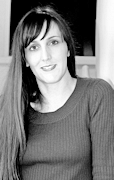One does not have to be a woman to see the problems women face in society. One does not have to be a woman to stand up for the rights of women. One does not have to be a woman to be a feminist. In this sense, my feminism IS humanism, and the only reason I make a distinction between the two is that women as a group face far more hurdles than men do in general. I’m supporting those who need the help most.
It is perhaps more than a bit ironic that a journey beginning with spiritual and supernatural doubt brought Martin Pribble to a place of greater certainty.
Not certainty of the existence or non-existence of a deity, but of the importance of preserving human rights in the face of anything—either flawed thinking or the misguided policies it creates—that may infringe on them.
American-born but raised in Australia, Pribble’s family was nominally Christian. Churchgoing was reserved for extended family, but he, his parents, and his brother celebrated major holidays of the faith, and participated in prayer at large family gatherings.
The move to Melbourne, where Pribble still resides today, was the catalyst in the process that led to both his nonbelief and his commitment to equality. The government-run school he and his brother attended sat next to a synagogue, and this functioned as his first exposure to a non-Christian belief system. In fact, many of his classmates were Jewish, and the novelty of knowing people who did not celebrate Christmas in December led to a number of discussions about where Christianity and Judaism agreed—and where they diverged.
By age 12, Pribble had decided his path lay outside of organized religion. But he remained fascinated by the possibility of a supernatural dimension. Just as his inquiring mind had led to the dissolution of his ties to Christianity, so did self-guided inquiry divest him of what he calls the “weak deism” that once filled the gaps in his knowledge.
Pribble dove into the study of spirituality, the occult and cryptozoology, finding that scientific methods did a much better job at providing explanations for these phenomena than did the vagaries of superstition. And, moreover, that legends and unfounded beliefs explain much more about the human condition than they do about the world outside the senses.
“After reading authors such as Joseph Campbell and Gaston Bachelard, I realized just how much of human history is tied up in a need to explain,” he says. “All mythology springs from this need, and all mythology…falls apart in terms of the…‘actuality’ of the world around us.”
However, it was not until after reading Richard Dawkins’ The God Delusion that Pribble says he gained the strength to join those trying to combat the worldwide detrimental effects of outdated methods of explanation.
The need for intervention, Pribble admits, is much more pressing in other parts of the world than in Australia. While there are some small, vocal groups like the Australian Christian Lobby in the country trying to insinuate religious educational or ministry programs in public schools, for instance, the Middle East, Afghanistan and Pakistan, India, Indonesia, and even the country of his birth suffer much more from the fallout of fundamentalist resurgence, says Pribble.
And while he does debate with believers via Twitter (@martinpribble) and his blog (martinspribble.com), he has found that engaging with issues rather than with individuals is a more effective way to raise consciousness across the board.
Pribble is an active member of the Atheist Foundation of Australia, a member of Think Atheist, Atheist Universe, and many other online groups. Pribble is also a fully fledged member of Secular Woman, whose advocacy for gender equality he hopes to see extend worldwide as the organization grows.
To Pribble, feminism is a logical extension of humanism, and deserving of a special highlight in his retinue of causes.
“Half of humanity is female, and if human rights are brought forward only to benefit men, then it fails to meet [the] criteria of equality,” he says.
He acknowledges that women’s rights across the globe depend on many more factors than just religion. However, he says, religion, gender, feminism, politics, culture and social evolution are inextricably linked.
“For me it's all the same fight,” he says, “a many-headed dragon that needs all its heads severed in order to make progress.”
Reed Walton, Outreach Committee Member
To learn more about Martin Pribble and hear about his commitment to feminism in his own words, visit http://martinspribble.com/2012/08/member-spotlight-at-secular-woman/.

 The blogger and activist grew up in what she labels “a sexually repressed religious family in sexually oppressive, religious Texas.” Dietle, who has a much younger brother, essentially grew up as an only child, hopping from church to church and denomination to denomination. By and large, her mother made the decisions as to where the family would worship. But Dietle’s father only rarely came along as mother and daughter tried services in traditions including Methodist, Pentecostal, and Presbyterian.
The blogger and activist grew up in what she labels “a sexually repressed religious family in sexually oppressive, religious Texas.” Dietle, who has a much younger brother, essentially grew up as an only child, hopping from church to church and denomination to denomination. By and large, her mother made the decisions as to where the family would worship. But Dietle’s father only rarely came along as mother and daughter tried services in traditions including Methodist, Pentecostal, and Presbyterian.